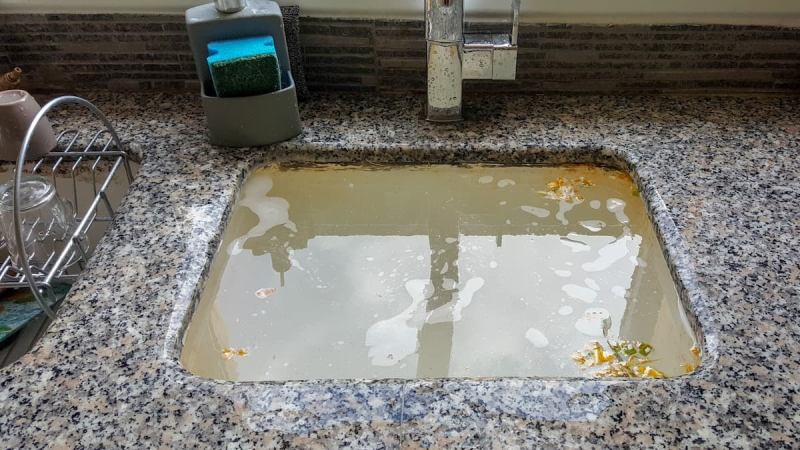5 Ways to Protect Your Plumbing from Tree Roots
Read More...
Standing water in your sinks is nothing but something you can ignore since it leads to health complications and other issues like a foul odor. While most clogs can be cleared before the damage becomes irreversible, delayed clogged drain line repair can compromise the flow of wastewater, affecting the cleanliness and health of your environment. At Mr. Rooter Plumbing, we have an experienced team ready to help you maintain an efficient drainage system, alleviating any clog-related issues like leaks, backup, and pipe bursts.
Our dependable plumber takes the time to conduct a comprehensive assessment of your plumbing to pinpoint the problem before it becomes too pronounced. We leverage cutting-edge tools and equipment for optimal precision and quality services. If you prefer unclogging your sink using DIY solutions, here are some suggestions recommended by our experts.
Hot water is used to unclog drains that have accumulated soap remains, hair, and grease. While these items tend to take a long before forming a complete seal in your pipes, hot water can help disintegrate these materials clearing your lines. Start by pouring a half-gallon of hot water directly into the drain's opening, and then turn on the faucet to see if the blockage is cleared. The process should be repeated twice to ensure the sink is completely unclogged. If the tap doesn't clear, it might be time you tried something else. Hot water shouldn't be used to unclog PVC pipes due to the high risk of damage if it melts.
A standard solution to unclogging a sink is using a plunger to clear blockage inside the lines. You can use a flat-bottomed plunger or a sink plunger to clear any clogs compromising the efficiency of your drains. The first step is to ensure all the stagnant water is removed from the sink and then replace it with hot water until it is half filled, generating a seal around the drain. Place the plunger over the drain and start pumping swiftly. Remove the plunger to see if the water is flowing, and then repeat the process until you are sure the clog is completely cleared. If this doesn't work, it is a sign that there's a bigger problem that calls for professional clogged drain line repair.
This method requires one to clear the standing water from the sink and pour a cup of baking soda and a cup of vinegar directly into the drain before covering the opening. Allow the mixture to settle for about fifteen minutes, and remove the cover so that hot water can be poured down the affected drain to break down intense clogs. The procedure should be repeated if there's a sign of improvement.
These are some DIY solutions that homeowners can use to alleviate clogs in their drains, but one should hire a plumber for maintenance if the issue is not corrected. We guarantee quality clogged drain line repair at a pocket-friendly price. Call us today at Mr. Rooter Plumbing and schedule an appointment with the experts.